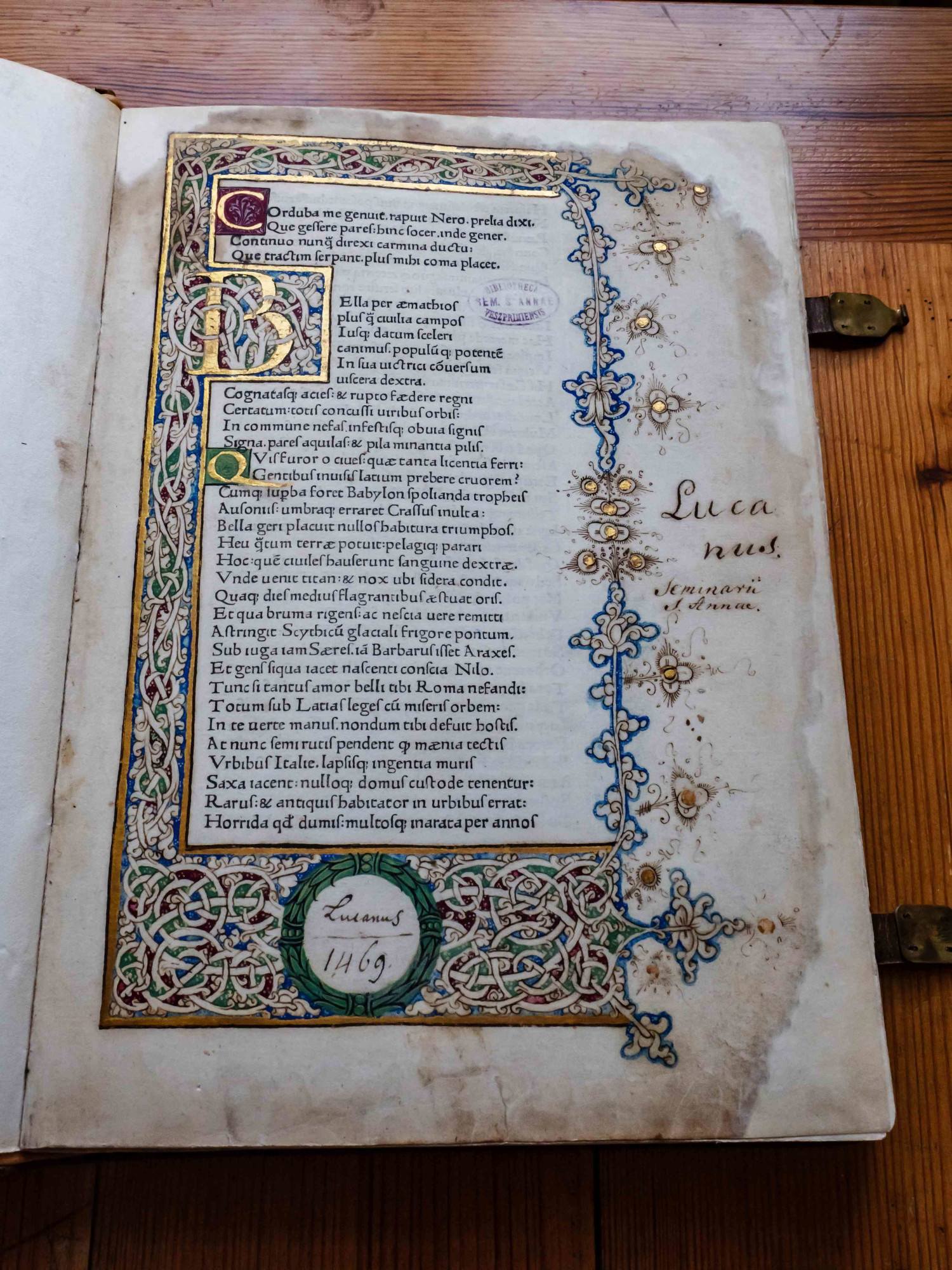(Ed. Johannes Andreae, episc. Aleriensis. Roma: Konrad Sweynheym et Arnold Pannartz, 1469.)
Printed materials made during the 15th century, which might have been decorated subsequently with manual painting, are called incunables. The Veszprém Archiepiscopal Library owns twenty-six incunables. The most valuable piece of this special collection is the work with inventory number 37006, which contains Pharsalia by Marcus Annaeus Lucanus (A. D. 39-65).
Lucanus was one of the most significant epic poet of the Roman literary silver era. From all his works only ten songs of his epic Pharsalia remained for the posterity. This fragmented work has an outstanding importance in literary history: by singing about the civil war between Julius Caesar and Pompeius, it creates the genre of rhyming novel. Pompeius is depicted as the hero of law and freedom. It implies that by Caesar’s victory and by losing freedom, Rome’s grandeur also declined. Nevertheless the author, being the Seneca's nephew, was brought up together with the emperor, Nero was so envious of his poetical successes that he sentenced Lucanus to death for being involved in Piso’s conspiracy.
Merely twenty-six registered copies are known worldwide of the extremely valuable incunable printed in Rome in 1469. There is only one copy in Hungary and it is located in the Veszprém Archiepiscopal Library. The beauty of the print is increased by the gilded and colour painted Italian ornamented title page and some similarly beautiful initials. A worthy frame of the volume is the richly decorated renaissance binding made in Buda in the 1480's. According to some speculations it is one of the Corvina prints. The user of the book might have been the king or a bibliophile collector in the circles of the king.
The exceptionally beautiful product was definitely in the stock of the library of the Veszprém episcopal seminary as early as in 1905. The seal of the Veszprém St Anna Seminary is on the title page.
A facsimile publication of the book was made by PYTHEAS Könyvmanufaktúra in 2020.

